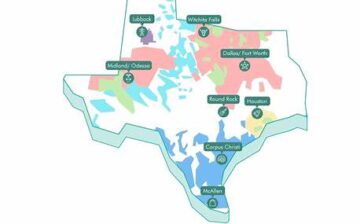More Americans are now considering moving to Canada because of its welcoming culture and stable economy. Finding the right home is crucial to a smooth, successful transition. Read on to learn the essential steps to secure your ideal Canadian property.

Understanding the Canadian Real Estate Landscape
Differences in Markets and Practices
While both the United States and Canada share a North American real estate culture, notable differences exist. In Canada, the housing market is generally more conservative, with stricter lending practices and historically fewer instances of market volatility. Property listings may appear more uniform, with standardized practices for buyer representation and listing agreements. Pricing and bidding, especially in major Canadian cities, can be competitive, often involving multiple-offer scenarios — similar to hot U.S. markets but with rules and customs shaped by Canadian regulations.
Regional Variations in Housing
Canada’s vast geography results in significant regional differences. Urban centers like Toronto and Vancouver feature high-rise condos and detached homes with hefty price tags due to strong demand and limited supply. In contrast, suburban areas around mid-sized cities may offer more spacious properties and family-friendly neighborhoods at comparatively lower prices. Rural regions, with their abundant land and lower population densities, appeal to those seeking tranquility and affordability. However, these areas may require trade-offs regarding amenities and proximity to major employment hubs.
Leveraging Online Sources for Pre-Construction Home Searches
The rise of online real estate platforms has made it easier than ever to explore Canada’s diverse housing market, whether you’re still in the U.S. or already north of the border. By browsing detailed property listings, comparing pricing across regions, and reading community insights, you can narrow down your options before investing valuable time and resources in in-person visits. Among these platforms, Owncondo stands out as the premier choice for finding pre-construction homes throughout Canada. This source simplifies the search process with an extensive database of new listings, transparent pricing information, and reliable neighborhood data. It guides you toward a residence that aligns perfectly with your lifestyle, budget, and long-term plans.
Immigration Requirements and Legal Considerations
Immigration Essentials
Americans moving to Canada need to determine their legal residency pathway. Options include work permits, Express Entry for skilled workers, family sponsorship, or provincial nomination programs. Your ability to purchase property is not strictly limited by immigration status; however, the mortgage approval process and financing options can be more complex for non-residents. Securing the correct visa or permit early on ensures stability and improves your chances of obtaining favorable financing terms.
Tax Implications for Non-Residents
Non-residents buying Canadian property may face additional taxes, such as the Non-Resident Speculation Tax (NRST), in certain provinces like Ontario and British Columbia. Property taxes and capital gains on real estate sales also differ from U.S. standards. Engaging a cross-border tax specialist helps you understand your obligations, plan your finances accordingly, and avoid unexpected costs down the line.
Deciding Where to Live in Canada
Factors to Consider
When choosing a location, think about climate preferences, job prospects, proximity to family or friends, and the cost of living. Consider whether you thrive in a bustling urban environment with easy access to cultural amenities or if you prefer the pace and space of suburban or rural living. Safety, quality of local schools, healthcare facilities, and public transportation are also vital points to weigh.
Popular Provinces and Cities for Expats:
- Ontario: Toronto is a multicultural metropolis known for its job opportunities in finance, tech, and media. Ottawa offers a quieter lifestyle with strong government and tech sectors.
- British Columbia: Vancouver boasts ocean views, mild winters, and a robust job market in tech, tourism, and film.
- Alberta: Calgary and Edmonton feature lower housing costs compared to Vancouver or Toronto and provide opportunities in energy, engineering, and finance.
- Quebec: Montreal offers a vibrant cultural scene, a bilingual environment, and relatively affordable housing costs.
- Atlantic Provinces: Cities like Halifax in Nova Scotia combine coastal charm with growing job opportunities, lower living costs, and friendly communities.
Budgeting for Your Dream Home
Comparing Costs of Living
While Canada’s cost of living varies by region, Americans often find healthcare, public services, and education costs more accessible. Housing prices, however, can surprise newcomers — especially in Canada’s largest cities, which sometimes rival or surpass major U.S. urban centers. Groceries, utilities, and transportation also vary, with some expenses higher and others lower than their U.S. equivalents.
Major Home-Buying Costs
Typical home purchase costs in Canada include a down payment (often at least 5% to 20%), closing costs (which can include land transfer taxes, legal fees, and home inspections), and property taxes. Buyers may need to budget for mortgage default insurance if their down payment is below a certain threshold. Understanding these expenses early on helps you set realistic expectations for your home purchase.
Navigating the Home-Buying Process in Canada
Key Steps to Buying a Home
Start by researching neighborhoods and identifying the type of home that suits your lifestyle. Engage a Canadian real estate agent familiar with helping international buyers. They can guide you through the property search and negotiations. Next, secure a mortgage pre-approval before making an offer, as sellers often favor buyers who have financing lined up. Finally, work with a lawyer or notary for the closing process, ensuring compliance with local regulations.
Inspections and Legal Representation
Home inspections are standard practice in both Canada and the U.S., but Canadian provinces may have differing standards and licensing requirements for inspectors. Appraisals help ensure the property’s value aligns with the offered price. Legal representation is essential in Canada, as each province has specific closing procedures and forms. This legal guidance ensures that your transaction is completed smoothly and that all documents comply with Canadian law.
Financing Options for American Buyers
Available Financing Methods
American buyers in Canada can often secure a mortgage from Canadian banks, credit unions, or even U.S.-based financial institutions that operate north of the border. Some lenders specialize in assisting non-residents but expect more stringent documentation requirements and possibly higher interest rates.
Differences in Mortgage Systems
Unlike the U.S. fixed-rate loans that commonly span 30 years, Canadian mortgages often come with shorter terms (e.g., five years) and require renewal. The qualification criteria can be stricter, especially for non-residents, who may need to demonstrate higher down payments or a solid credit history. Understanding these differences is key to finding the right financial fit.
Understanding Canadian Home Types
Common Housing Types
Canada’s housing landscape includes condos, townhouses, semi-detached homes, and fully detached single-family properties — similar to the U.S. Yet, the prevalence of condominiums in major Canadian cities is often higher, reflecting density and land-use policies. Additionally, certain housing types like duplexes and triplexes are popular in urban cores, offering rental income opportunities.
New Construction vs. Resale
New construction homes offer modern amenities, energy efficiency, and customization options. However, these can come with higher prices, construction delays, and the uncertainty of living in a developing neighborhood. Resale homes, while older, may have established landscaping, mature neighborhoods, and immediate availability. Balancing these factors with your budget, timeline, and personal preferences will guide you toward your ideal choice.
Settling Into Your New Home and Community
Cultural Adaptation
Embracing Canadian culture involves learning about local customs, becoming familiar with social norms, and engaging with your community. Volunteering, attending local events, and joining clubs or sports teams are great ways to meet neighbors and make friends. Understanding the cultural mosaic of Canada and respecting its bilingual heritage can help you feel at home faster.
Essential Services
Once you’ve taken possession of your home, set up basic utilities like electricity, gas, and water. Arrange for reliable internet and phone services, which may require proof of residency. Registering for provincial healthcare coverage (if eligible) and finding a family doctor is crucial for health and wellness. Establishing these services early helps you settle in smoothly.
Common Challenges and How to Overcome Them
Frequent Relocation Hurdles
Common challenges include navigating unfamiliar banking systems, dealing with currency fluctuations, adjusting to the metric system, and understanding Canada’s unique healthcare landscape. The often colder climate in many parts of the country may also be a shock.
Overcoming Obstacles
To ease the transition, work with professionals — immigration consultants, tax advisors, and real estate agents experienced in cross-border moves. Engage with local expat communities online and in person for support and advice. Managing homesickness may involve keeping in touch with friends and family back home through regular video calls and returning to your U.S. comfort food or entertainment on occasion. Over time, integrating into Canadian life becomes easier, and the initial hurdles fade.
Conclusion
Finding your dream home in Canada as an American is both an exciting opportunity and a complex endeavor. The journey involves carefully understanding legal requirements, exploring diverse regions, budgeting accurately, and navigating a new mortgage landscape. Yet, the rewards — improved quality of life, cultural enrichment, and the potential for new professional avenues — make the effort worthwhile.
As you plan your move, remember that help is available. Real estate agents, lawyers, financial advisors, and immigration consultants can guide you through the process. With the right support, you can secure the perfect home, settle into a welcoming community, and open the door to a fulfilling life in Canada. Take the first step confidently, and let professional expertise and research pave the way to your new chapter north of the border.
We hope you found this blog post Moving from the US to Canada: A Guide to Finding Your Dream Home, useful. Be sure to check out our post Is Moving to Canada a Good Idea? for more great tips!
Have Experience in the Moving Industry? Want an Additional Income Stream? Work With All Around Moving!
All Around Moving Services shares profits 50-50 with you from all jobs you book with us. Partner with us and we’ll help you profit. Profit as a moving consultant. Click here to learn more.





